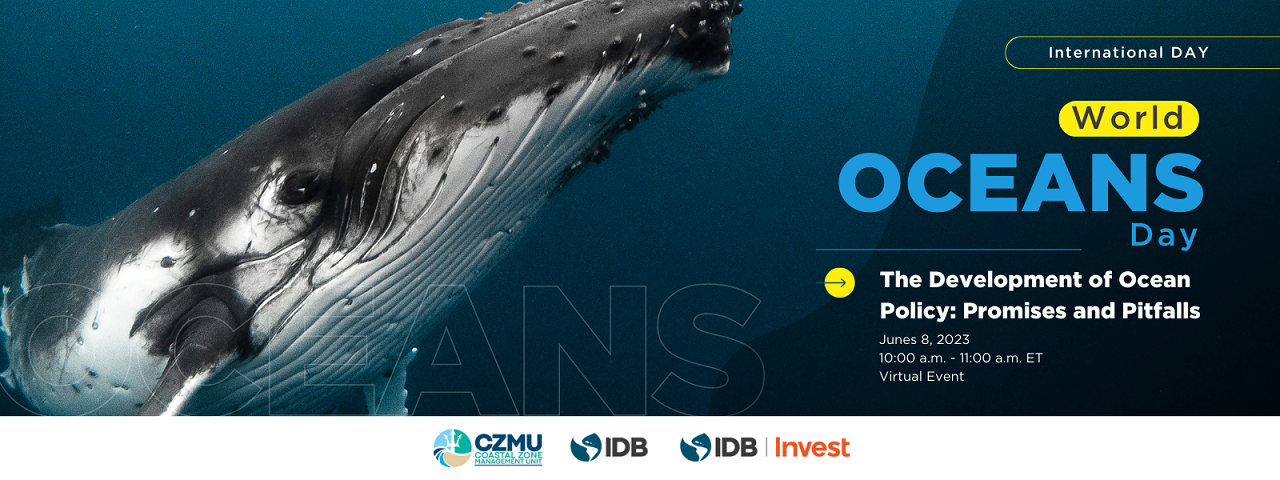International Oceans Day is a reminder of the importance of this ecosystem. The ocean covers more than 70% of the Earth’s surface, generates half of the oxygen we breathe and absorbs at least a quarter of the carbon dioxide emitted by human activity. They are also a vital source of food, energy and natural resources for millions of people worldwide. However, the oceans face serious threats, such as overfishing, pollution, climate change, and acidification, which negatively affect their biodiversity and their ability to regulate climate and natural cycles.
It is worth noting that caring for the oceans contributes to achieving the goal of limiting the global temperature increase (1.5-2C) established by the Paris Agreement. Oceans are carbon sinks, having the capacity to absorb significant amounts of carbon dioxide (CO2) from the atmosphere; in fact, the more CO2 that enters the atmosphere, the more the oceans absorb, causing a process of acidification, which impacts corals and marine animals.
In December 2022, countries agreed at COP15 to protect 30% of the land, oceans, coastal areas, and rivers by 2030. Latin America and the Caribbean is a mega-biodiverse region with 40% of the world’s biodiversity and plays a key role in biodiversity conservation and climate action. Therefore, in the framework of International Oceans Day 2023, we would like to highlight three recent IDB projects that are contributing significantly to the protection and conservation of our oceans.
Blue economy in Barbados
The blue economy refers to the set of sectors, economic activities, and policies related to the sustainable management of marine and coastal resources. It allows countries in the region to expand into new areas such as marine biotechnology, marine renewable energy, sustainable tourism, fisheries/aquaculture, and carbon sequestration.
Barbados is a small island developing state (SIDS) whose economy depends on tourism. Its maritime and fisheries sectors contribute significantly to the national gross international product (GDP). That is why in 2021, Barbados adopted its Blue Economy Roadmap, establishing the priority of the ocean in generating jobs and growth and the importance of ensuring sustainable use of its resources for sustainable development. In 2022, Barbados renewed this commitment with its debt-by-nature transaction, which is backed by a commitment to protect 30% of marine protected areas. A key process that has begun this year through its Marine Spatial Planning (MSP).
Galapagos Islands, the Largest Debt-for-Nature Conversion
With IDB support, Ecuador recently completed the world’s largest debt-for-nature conversion and will allow it to allocate resources for long-term marine conservation in the Galapagos Islands to promote greater sustainability and improve the quality of life of Ecuadorians.
As part of the debt-for-nature deal, Ecuador has committed to invest more than $323 million in conservation in the region over the next 18 years, in particular, to manage and oversee the Hermandad Marine Reserve, a new protected area announced by the government in 2021.
The operation consists of an $85 million IDB guarantee and $656 million of political risk insurance from DFC to Ecuador to purchase existing public debt on better terms. This debt purchase with lower-cost financing will generate total savings of more than $1.126 billion. In addition to providing the guarantee, the IDB has supported institutional strengthening policies for environmental and public debt management in the country. All the preparatory work for the operation was done with resources from the IDB’s NDC Pipeline Accelerator fund, supported by partners from the Netherlands, Finland, Sweden, Austria and the Nordic Development Fund (NDF).
Blue Carbon in Panama
With investments of $2.3 million from the UK’s Blue Carbon Fund, the IDB is supporting a technical assistance project to promote the conservation and protection of Panama’s coastal natural capital, including mangroves and wetlands. Scientific activities are underway to quantify the so-called blue carbon stored in the mangroves of Parita Bay and Panama Bay, as well as complementary research on mangrove dynamics, such as the mapping of mangrove and bird species as an indicator of ecosystem health. The project is also advancing with the valuation of ecosystem services such as coastal protection, carbon sequestration and fisheries that will contribute to informing authorities and sectors for better planning, management and development.
On June 8 at 10:00 am ET, we will hold the panel “Ocean Policy Development: Promises and Challenges”, where experts from the region will discuss how ocean policy and innovation have generated innovative financial instruments to increase resources for ocean protection and enhance climate action. Register here



Leave a Reply